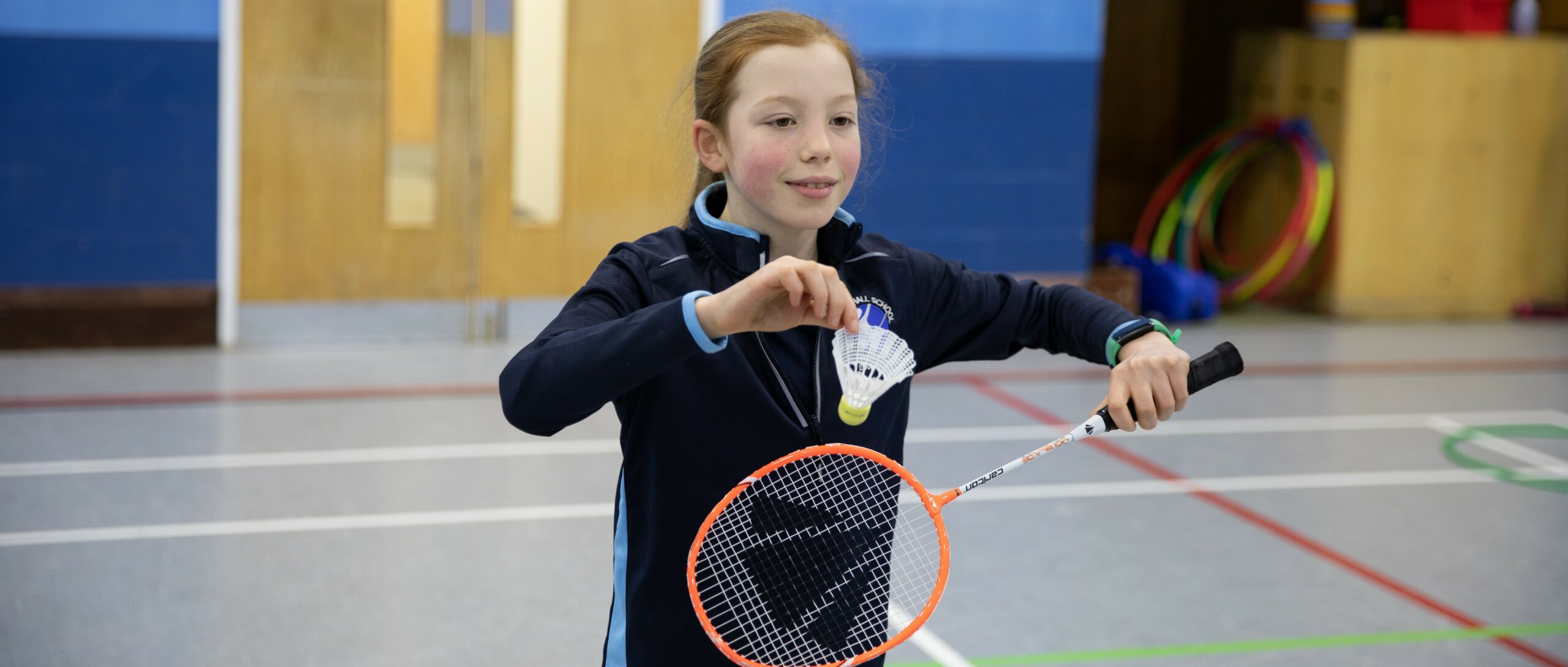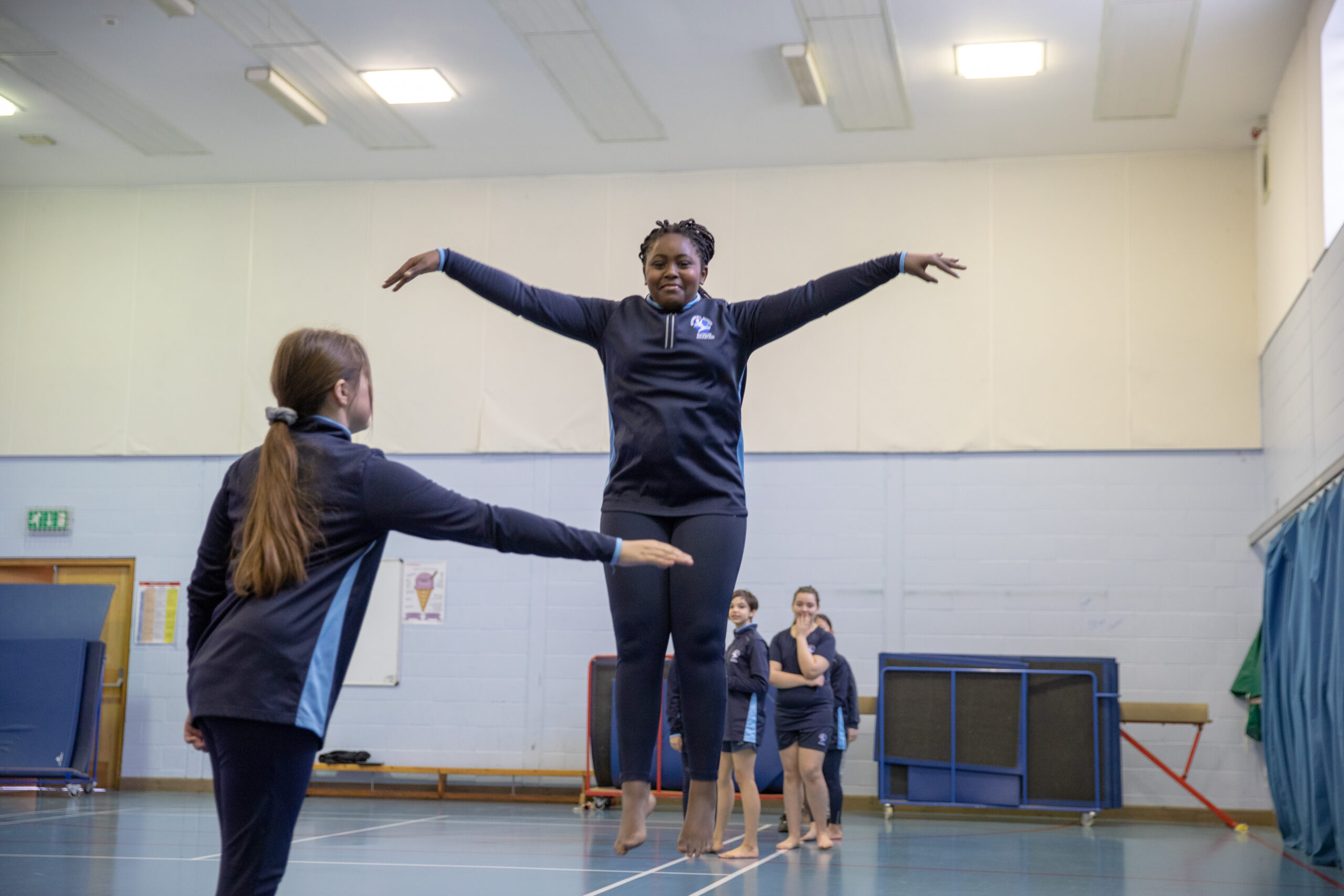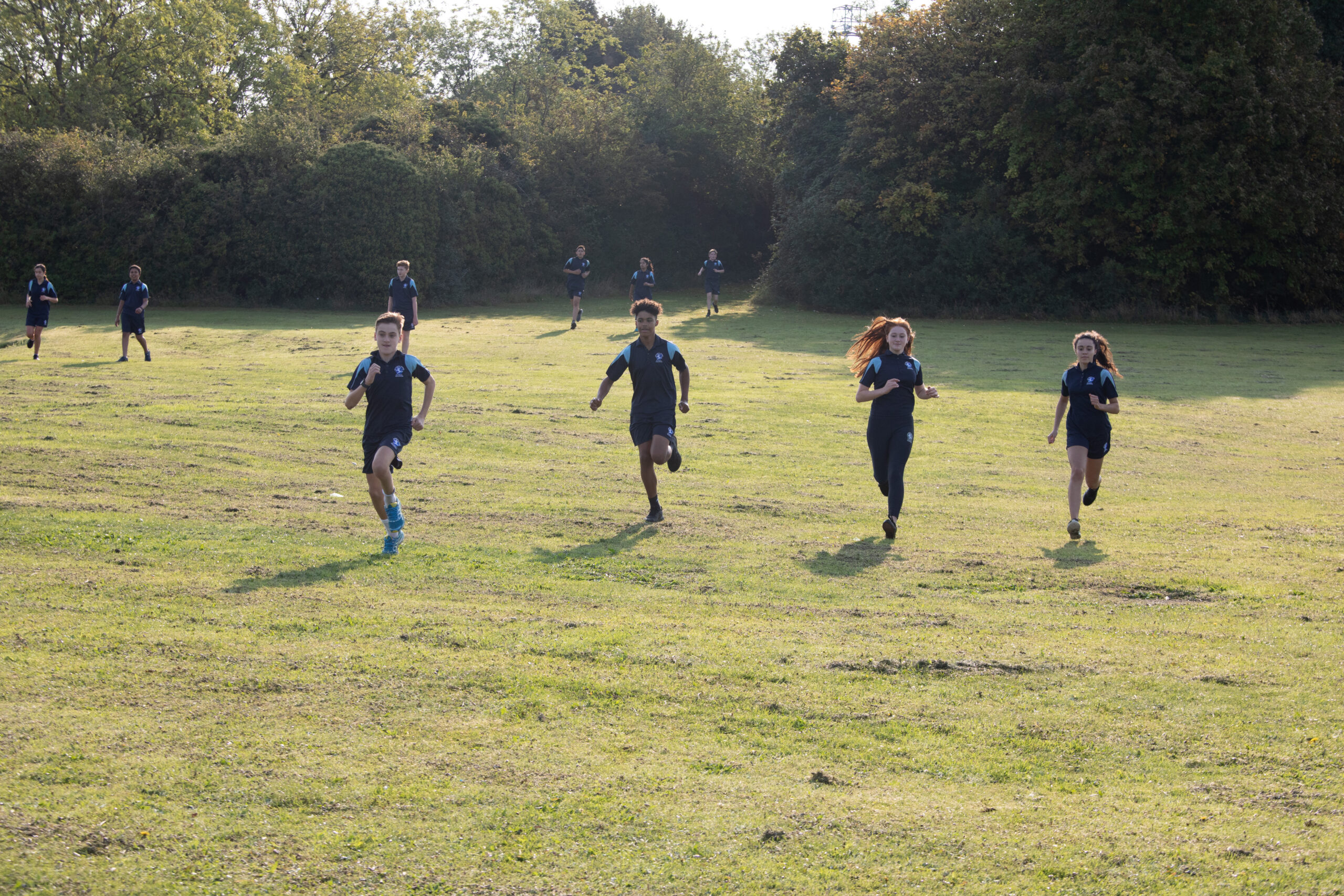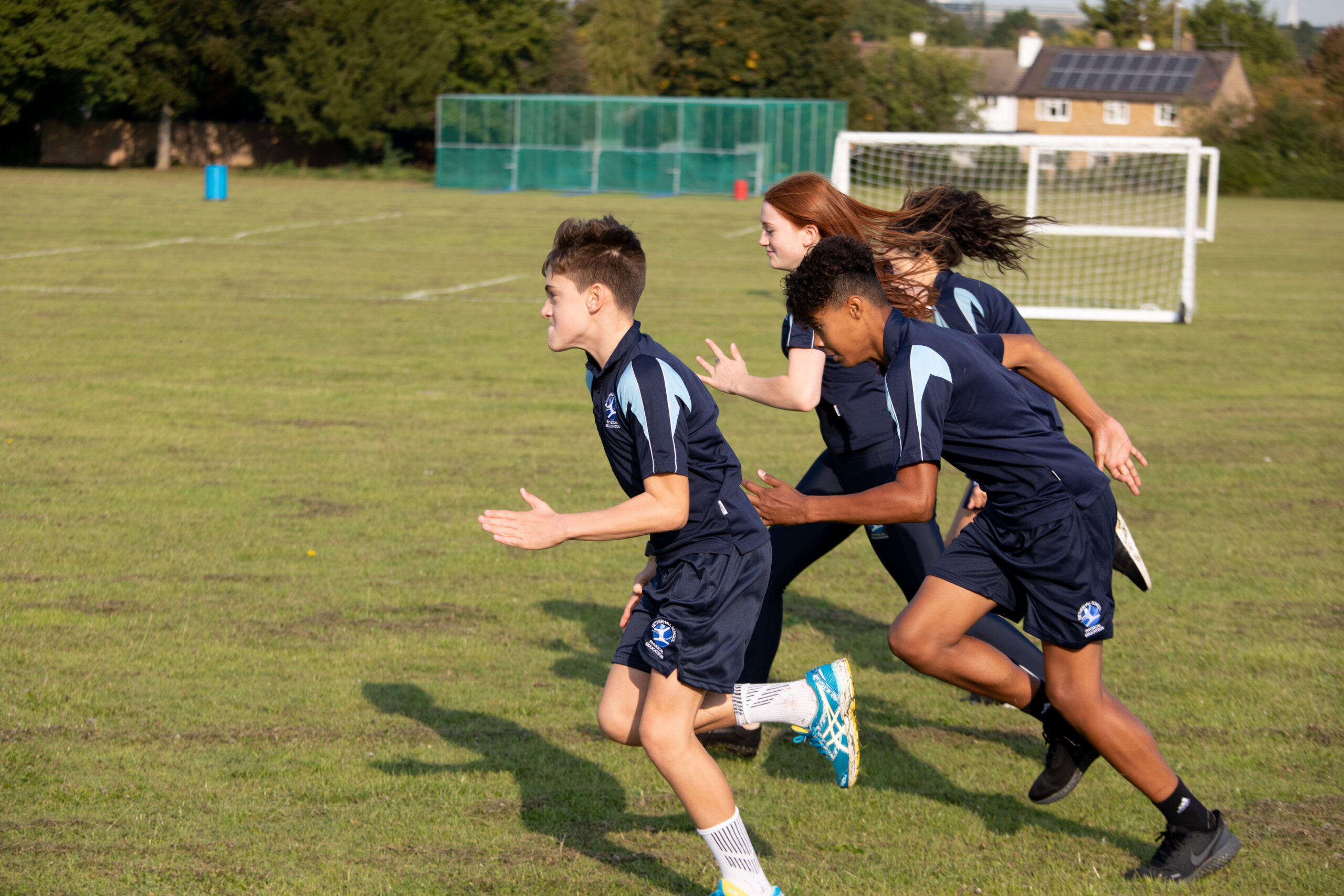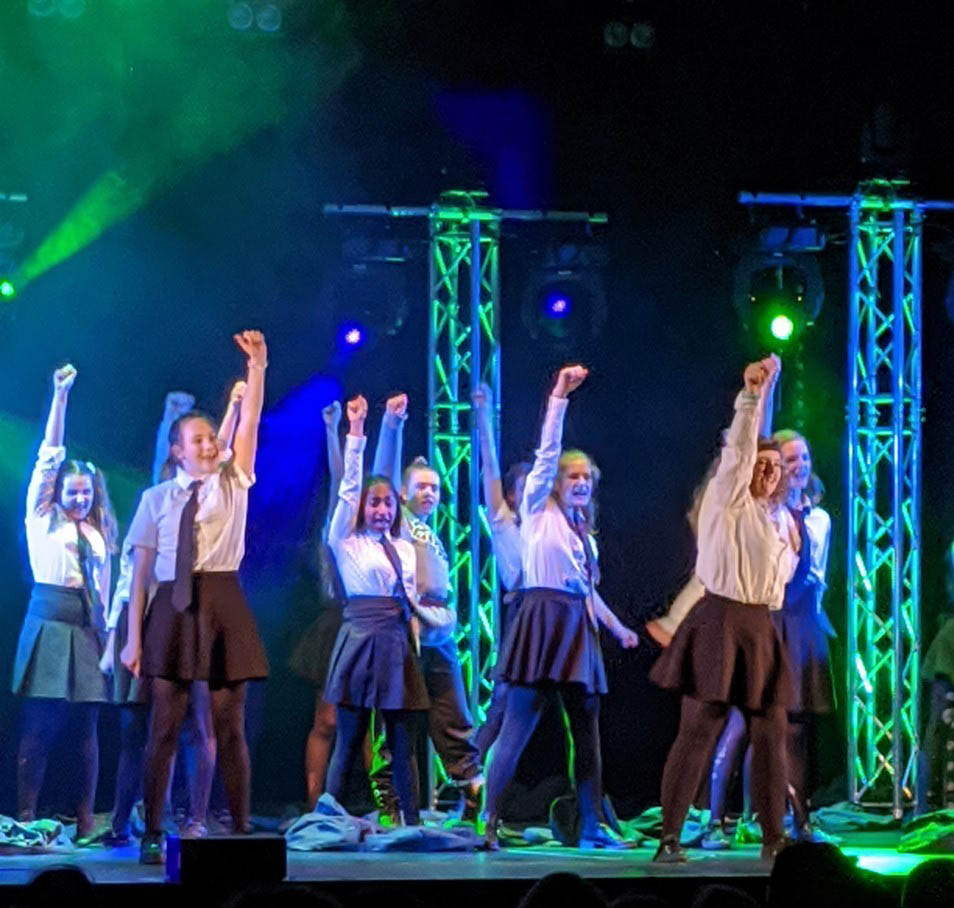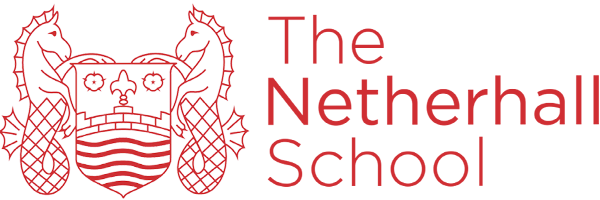Physical Education
Physical Education
We strive to produce confident, self-assured, and successful young adults who have the learning skills, and track record of success in a variety of experiences, that will allow them to make a positive contribution to their society. We aim to instil a passion for sport and make physical activity part of their everyday lives. Students will leave Netherhall School having developed a range of skills that will help them achieve their goals in life and do so with the knowledge of how to live a healthy active lifestyle.
Key Stage 3 & 4 Core PE
Pupils in years 7 to 11 study Physical Education for two 1-hour lessons per week. Students will focus on both the Physical and Educational aspect of PE, with their lessons being structured so that one lesson prioritises the students being physically active, while the other lesson explores more academic concepts within Physical education. Examples of the Educational aspect come from our First Aid, Healthy Active Lifestyles unit and Equality units, where students learn about these concepts in a classroom as well as in practical environment. Students will be encouraged to learn and develop a range of skills that will enable them to make positive contributions to society.
Across each academic year all students will complete approximately 12 units; with each unit comprising of approximately 6-8 lessons. Pupils are taught key themes and content through the mediums of various activity areas. All lessons/ units are written and designed using the whole school curriculum intent model; Inspiring, Inclusive and Individual. This concept drives the PE curriculum to ensure every student gets the best possible experience and opportunity within Physical Education.
Key Stage 4 – GCSE PE
Pupils in years 10 and 11 can choose to study the GCSE PE course as an option subject which follows the OCR 9-1 ((J587) specification. Students have 3 classroom-based theory lessons and 2 practical based lessons on a fortnight cycle.
Topic areas covered include;
- Applied anatomy & physiology
- Physical training
- Socio-cultural influences
- Sport psychology
- Health, Fitness & well-being.
This element of the course constitutes 60% of the overall GCSE and is assessed via two external examinations.
The practical performance element of the course is internally assessed and externally moderated. Students have to perform in 3 sports (2 team and 1 individual or vice versa); demonstrating a wide range of core and advanced skills, tactics and strategies in competitive situations. Each sport is scored out of 20, with an overall weighting of 10%. Pupils will primarily obtain their practical marks from the sports which they participate in for Games; however, some may also come from activities both inside and outside of school. The class teacher must ensure that pupils are graded by a PE specialist, and preferably assess them themselves, so to be 100% confident of the mark awarded according to the OCR criteria. Video evidence will be required if a live assessment cannot be conducted, and for all ‘offsite’ activities such as skiing.
Pupils have to research and compile an ‘Analysing Performance’ piece of coursework under controlled conditions. It involves them having to analyse their own strengths and weaknesses in a chosen sport and write an action plan for how to improve their performance over time. This constitutes the final 10% of the qualification.
The full specification and other teaching resources can be found at www.ocr.org.uk/qualifications/gcse-physical-education-j587-from-2016/
KS4 – Level 2 Cambridge Nationals
Pupils in years 10 and 11 can choose to follow the OCR Level 2 Cambridge Nationals Sports specification as an option subject. Students have 3 classroom-based theory lessons and 2 practical based lessons on a fortnight cycle.
Topic areas include;
- R184 – Contemporary Issues in Sport
- R0185 – Performance and Leadership in Sports
- R186 – Sport and the Media
Across the two years students will cover the three units, with R184 exam being sat in the summer exam series of year. Each unit is assessed in a range of ways:
- R184 – Contemporary Issues in Sport – By completing this unit you will understand a range of topical and contemporary issues in sport, including learning about participation levels and barriers to completing sporting activities. You will also learn how participation is impacted by the promotion of values and ethical behaviour, about the role of high-profile sporting events, the role of national governing bodies and how technology is used in within sport. Topics include:
o Issues which affect participation in sport
o The role of sport in promoting values
o The implications of hosting a major sporting event for a city or country
o The role National Governing Bodies (NGBs) play in the development of their sport
o The use of technology in sport.
- R185 – Performance and leadership in sports – This is assessed by a set assignment In this unit you will have an opportunity to develop your skills both as a performer in two different sporting activities, and as a leader, developing a range of transferable skills. You will work both independently and as part of a team, including communicating with team mates as well as being in front of an audience when you perform. You will perform under pressure, both as a participant and as a leader, and will use your initiative to solve problems and make decisions. Finally, you will deal with rapidly changing conditions and situations. Topics include:
o Key components of performance
o Applying practice methods to support improvement in a sporting activity
o Organising and planning a sports activity session
o Leading a sports activity session
o Reviewing your own performance in planning and leading a sports activity session.
- R186 – Sports and the media – This is assessed by a set assignment In this unit you will understand the different sides of a range of media sources and apply real life examples to show the nature of the relationship between media and sport. You will also learn how rapid development in technology is enabling sport to be viewed, replayed and discussed whenever and wherever the spectator wants. You will then develop your ability to evaluate and interpret the different ways in which sport is represented by the media. Topics include:
o the different sources of media that cover sport,
o Positive effects of the media in sport
o Negative effects of the media in sport.
The full specification and other teaching resources can be found at https://www.ocr.org.uk/qualifications/cambridge-nationals/sport-studies-level-1-2-j829/specification-at-a-glance/
Extracurricular activities:
The PE Faculty strive to offer a rich and varied experience of Sports and Fitness clubs. There are numerous activities running before school and after school on a half termly cycle. These clubs include; Netball, Football, Basketball, Rugby, Hockey, Badminton, Tennis, Rounders, Cricket, Dance, Table Tennis, Athletics, Fitness club and many more. In addition, we have a full fixture list for many Sports, where we will play cluster matches and tournaments against other schools from across the District. As well as these we also offer GCSE & A level revision sessions on a Thursday after school to support those students studying our subject.
All the clubs we offer are based on participation and giving every student the opportunity to come and try new activities and develop their skills outside of their normal curriculum. Go to the Enrichment Timetable link to see the full list for this half term.
Key Stage 5 – A level PE
Details of the Key stage 5 curriculum in Physical Education subject can be found on the Oakes college website by clicking here.
All other key stage 5 information should be removed, as it will only mean repeating a task to keep both up to date in the future.
